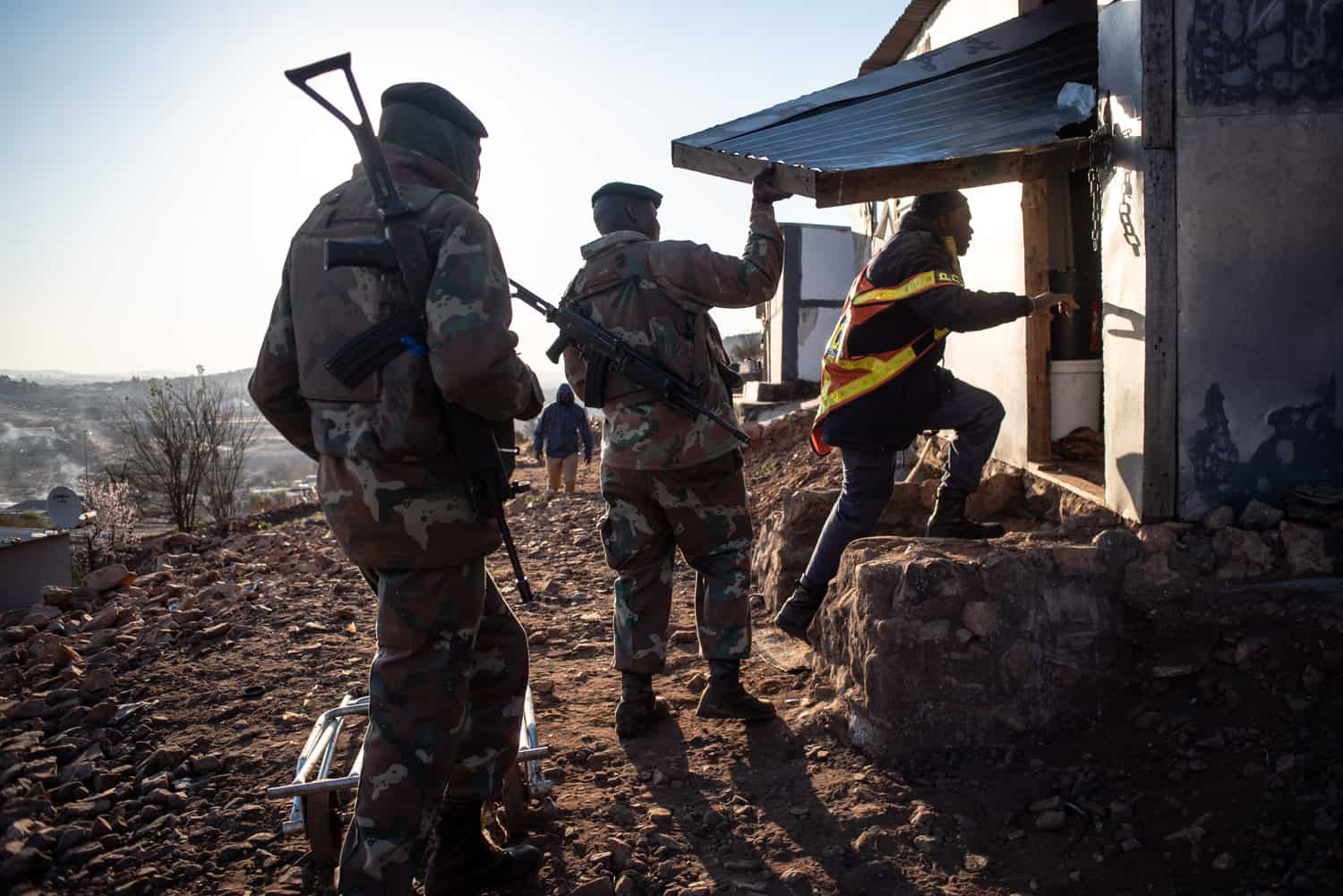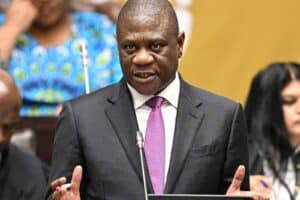Ramaphosa says he discussed his concerns about ‘operation khipha ireceipt’ with Police Minister Bheki Cele.

President Cyril Ramaphosa says he was troubled and touched by the operation executed by police and military last year to recover looted items from the poor, in the wake of the deadly July unrest.
July unrest hearings
Ramaphosa on Friday morning testified in Johannesburg at the South African Human Rights Commission’s (SAHRC) investigative hearings on the deadly violence, looting and destruction of infrastructure that engulfed parts of KwaZulu-Natal and Gauteng in July.
He was the first president in South Africa’s democratic history to appear before an investigative hearing of the Chapter Nine Institution.
Ramaphosa told the hearings “operation khipha ireceipt” – which is loosely translated as “operation produce a receipt” – did not please him as he watched visuals on television of police and military going door-to-door in informal dwellings in search of looted goods.
ALSO READ: Poor service delivery at the core of July unrest
He said this was particularly troubling to him, given that the retrieved food items were ultimately destroyed, amid what he described as the “sea of poverty and hunger” in South Africa.
“I was troubled when I saw how they were going from house-to-house searching [and] finding bags of mielie meal, rice, cooking oil… and taking them out and then seeking to arrest some of the people. That troubled me a great deal,” Ramaphosa said.
“And much as something really terrible had happened when our people had been exposed to this temptation of going out to loot, I was not pleased at all as we saw poor people being visited by police and the goods – that may well have been taken from places – being taken out and destroyed.”

Ramaphosa said he discussed his concerns about “operation khipha ireceipt” with Police Minister Bheki Cele.
“I said this does not look good and this does not land itself well to just being able to deal with the issue of poor people, and we needed to weigh up what precisely what it is we were seeking to do.”
Despite his misgivings about the operation, Ramaphosa said the country’s high levels of unemployment, poverty and inequality did not justify the looting of shopping malls and stores.
“It is not justified at all. At the same time, one did get touched by visions and pictures of people being hauled out of their homes with bags of mielie meal and that being destroyed. That did not look nice,” he said.

State security’s response
Earlier, in his opening statement to the SAHRC, Ramaphosa reiterated that the country’s security forces were poorly prepared for the civil unrest.
He said the violence – which claimed the lives of more than 300 people and caused economic damage to the tune of over R50 billion – was nothing less than a “deliberate, coordinated and well-planned attack” on SA’s democracy.
Ramaphosa said the country was still reeling from the effects of the violence.
He said the identity of the instigators behind the unrest and their motives was the subject of ongoing investigations and legal proceedings.
“The chaos was used as a smokescreen to carry out acts of economic sabotage like attacks on commercial trucks carrying goods, the raiding and torching of shopping malls, factories and warehouses, and the blocking of roads and highways vital to economic activity,” Ramaphosa said.
Causes of unrest
The president said the prevailing socio-economic conditions in the country played a major role in contributing to the civil unrest.
He said this could explain why so many ordinary South Africans participated in the looting even though they risked arrest, injury – and in some cases – death.
“We have acknowledged that as government we were poorly prepared for an orchestrated campaign of public violence, destruction and sabotage of this nature.
“What this country experienced was not a popular uprising of the poor, as the peddlers of misinformation sought to characterise it.
“It was not the bubbling over of discontent over an allegedly legitimate political grievance. It was an attempted insurrection,” Ramaphosa said.
NOW READ: Ramaphosa is beginning to take security cluster seriously thanks to insurrection






